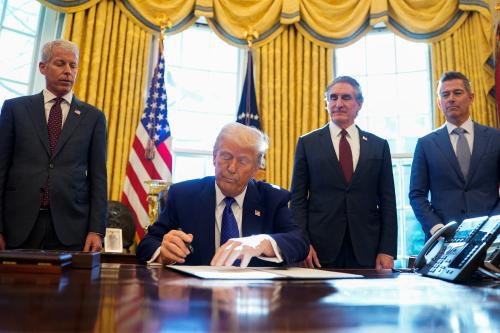The U.S. government provided major support to the financial sector during the financial crisis, just as most advanced nations did. No one disputes this. Nor does anyone dispute that we want to avoid this scale of intervention again. There will always be a role for government support during the inevitable financial crises that occur, but it should be very infrequent, limited, and taxpayers should ultimately be made whole if they lose any money up-front.
The Government Accountability Office (GAO) released a report today on the level of support provided during the crisis to the financial industry. It contains a substantial amount of useful information about the scale of support provided, which we already knew to be very large.
A key point to bear in mind while reading the report is that most of the calculations are based on the difference between market prices and those available through the government support. Completely unsurprisingly, the government support was more favorable than market terms. There is no point in intervening by offering the same terms as the market under crisis conditions. Financial crises cause prices to be distorted. Credit spreads shoot up to unreasonable levels and stock prices collapse temporarily. Offering the same terms as the market provides no help in fighting these distortions and stabilizing the system.
Central banks like our Federal Reserve have dealt with this issue for years, in the context of their role as “lender of last resort”. It is well accepted that lending by central banks under crisis conditions should be on more favorable terms than the market, even though the costs generally still represent a penalty rate compared to more normal conditions.
The GAO figures are interesting and of historical significance, but do not contradict the fact that government support during the financial crisis was essential and that taxpayers escaped with remarkably little direct cost from that support, actually making money on most of the programs. The indirect costs of the crisis, which triggered the Great Recession, were much larger. However, these societal costs were reduced, not increased, by the government’s bold actions in stepping up to provide the necessary support to the financial sector.
The Brookings Institution is committed to quality, independence, and impact.
We are supported by a diverse array of funders. In line with our values and policies, each Brookings publication represents the sole views of its author(s).



Commentary
Government Support In The Financial Crisis
November 14, 2013